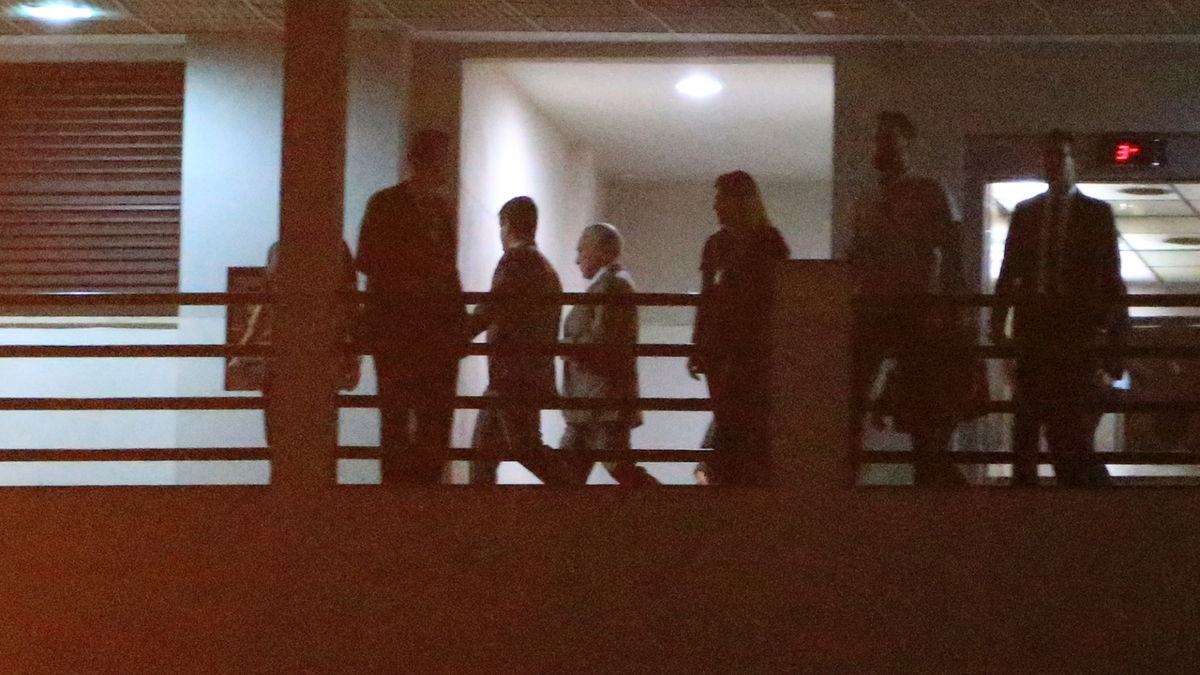
Former Brazilian President Michel Temer, center, arrives to the Federal Police headquarters in Rio de Janeiro, Brazil, Thursday, March 21, 2019. In a statement, the Prosecutors Office in Rio de Janeiro said that Judge Marcelo Breitas had issued an arrest warrant for Temer, as well as Moreira Franco, a former minister and close ally of Temer, and eight others. (AP Photo/Bruna Prado)
RIO DE JANEIRO – Brazilian federal police expect to take testimony from ex-President Michel Temer and his former Cabinet minister Wellington Moreira Franco on Friday, a day after both were arrested as part of the country's sprawling Car Wash corruption probe.
The probe has ensnared several top politicians and businessmen in the South American country, including former President Luiz Inacio Lula da Silva, who is currently serving a 12-year sentence.
Temer, 78, was arrested on corruption charges Thursday, with prosecutors saying that construction company Engevix paid him bribes in exchange for a contract to build a nuclear power plant in the city of Angra dos Reis in the southern part of Rio de Janeiro state.
Lawyers for the former president consider his jailing illegal and have filed two requests for his release. A federal court based in Rio de Janeiro could soon make a decision on the case.
The arrest comes at a time of considerable tension between Car Wash prosecutors and the Supreme Court. A week ago, the Supreme Court ruled that some graft investigations should be handled by electoral judges because they involve politicians who received kickbacks from companies to finance their campaigns. In ruling, some justices acknowledged that Brazil's electoral court system lacks the infrastructure and expertise to handle such big corruption cases, but expressed confidence that the gap could be bridged.
The country's top court also blocked a move that allowed a task force to manage hundreds of millions of dollars recovered from corruption scandals at state-run oil giant Petrobras.
While prosecutors and judges involved in the investigation see the imprisonment of Temer as a major win after those setbacks, others in Brazil were critical of the decision of federal judge Marcelo Bretas to arrest him.
"Car Wash is trying to turn the focus away from the discredit it was falling into," said da Silva on Twitter Thursday night. "The (Car Wash) task force does not need pyrotechnics to survive, it needs sobriety."
Luis Henrique Machado, a law professor at IDP university in Brasilia, said the arrest of the deeply unpopular former president on "absurd grounds" appeared to be a response to recent blows by courts.
"Prosecutors and magistrates have pressured and intimidated Brazil's Supreme Court recently. That game is being played," Machado said. "It is a judicial invention that could cost all sides dearly."
Temer governed between 2016 and 2018 after his predecessor Dilma Rousseff was impeached.
His administration was clouded by corruption allegations, with Temer himself surviving two votes in Congress that would have suspended him from office and put him on trial for graft charges.
There are now 10 investigations related the former Brazilian president, who was once a discreet backroom dealmaker in Congress before he was propelled into Brazil's presidency amid a huge political and economic crisis.
Temer left office with his job approval in single digits, with many of adversaries sure that his imprisonment was imminent.
____
AP writer Savarese reported from Madrid.
